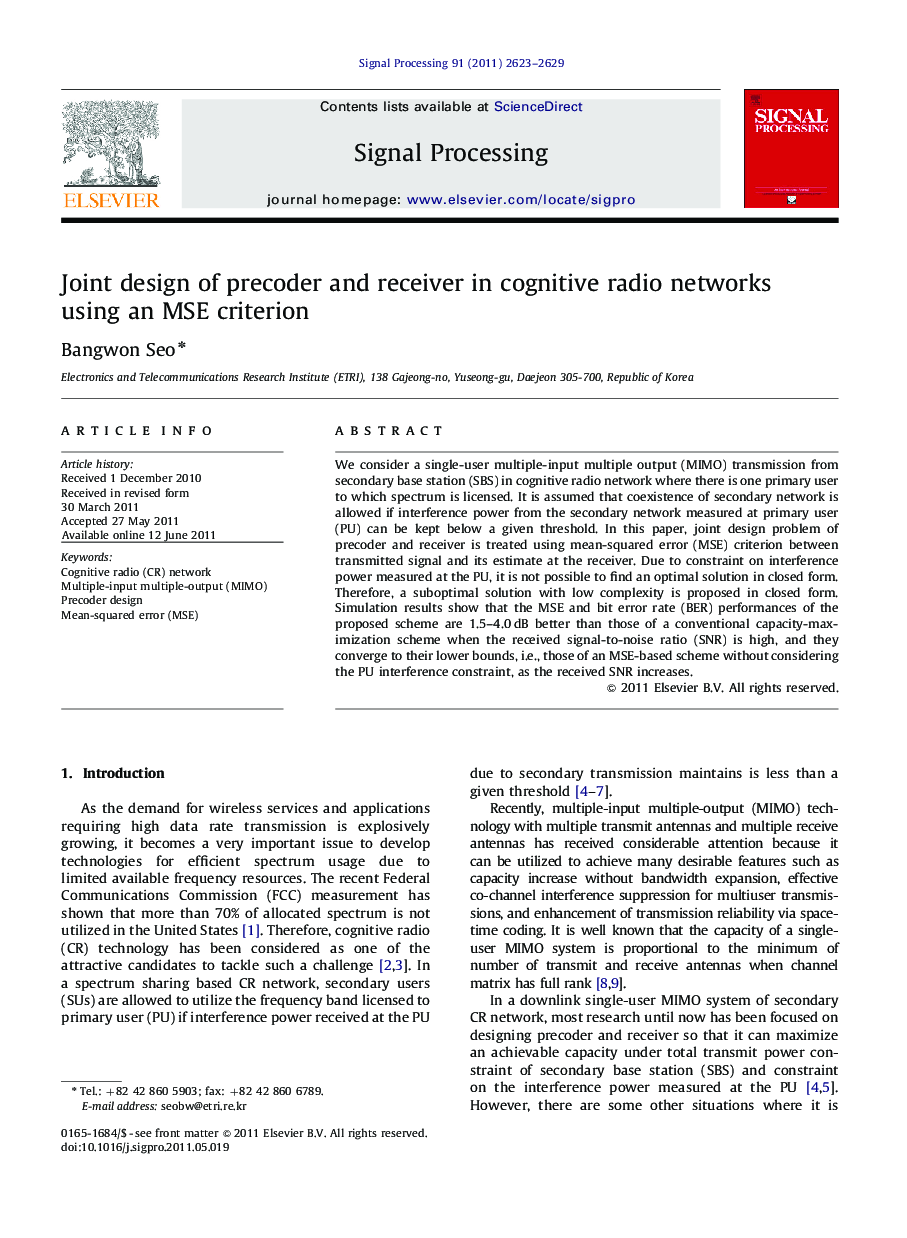| Article ID | Journal | Published Year | Pages | File Type |
|---|---|---|---|---|
| 563589 | Signal Processing | 2011 | 7 Pages |
We consider a single-user multiple-input multiple output (MIMO) transmission from secondary base station (SBS) in cognitive radio network where there is one primary user to which spectrum is licensed. It is assumed that coexistence of secondary network is allowed if interference power from the secondary network measured at primary user (PU) can be kept below a given threshold. In this paper, joint design problem of precoder and receiver is treated using mean-squared error (MSE) criterion between transmitted signal and its estimate at the receiver. Due to constraint on interference power measured at the PU, it is not possible to find an optimal solution in closed form. Therefore, a suboptimal solution with low complexity is proposed in closed form. Simulation results show that the MSE and bit error rate (BER) performances of the proposed scheme are 1.5–4.0 dB better than those of a conventional capacity-maximization scheme when the received signal-to-noise ratio (SNR) is high, and they converge to their lower bounds, i.e., those of an MSE-based scheme without considering the PU interference constraint, as the received SNR increases.
► We consider cognitive radio network. ► We design precoder and receiver jointly for secondary network using an MSE criterion. ► A suboptimal solution with low complexity is proposed in closed form. ► MSE and BER performances are provided for the proposed and conventional schemes. ► The performance of the proposed scheme converges to its lower bound.
